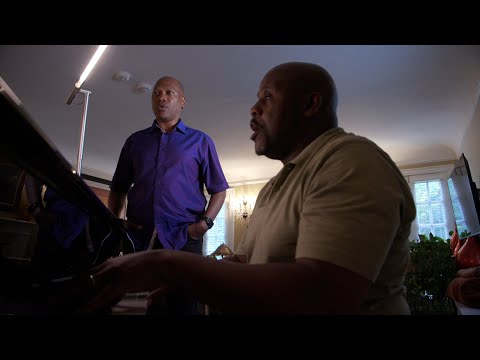“Don’t ask, don’t tell” may be a thing of the past in the military.
But according to two scholars at Northwestern University, it is very much a reality in the world of gospel music within the Black church.
“If you took all the gay people out of a church choir,” says E. Patrick Johnson, dean of Northwestern’s School of Communication and director of NU’s Black Arts Initiative, “you wouldn’t have a choir.”
And yet, says Johnson, an expert in both gospel music and in gay Black studies, there has always been a “wink wink, nod nod” sense of knowing a choir member or gospel soloist was gay, but few people ever brought it up, and it took tremendous courage for the gay church member to come out publicly and affirm their true sexuality.
Kent Brooks agrees. A professor at NU who teaches Black gospel music and heads programs at Millar Chapel, Brooks says being a gay musician in a Black church can be “very paradoxical.”
On Tuesday evening, Oct. 11, Brooks and Johnson will present a combined lecture and musical performance about “Gays and Gospel,” at Millar Chapel.
The Black church, Brooks says, centers on liberation theology, the ongoing Black struggle from slavery through present day racism.
And yet, Brooks notes, a secretly gay person in such a church “can’t totally be free,” particularly if that person is thanked for outstanding musicianship but occasionally hears a “homophobic sermon” from the pulpit.
Both scholars stress that this is not unique to Black churches, however, it takes on a specific framework when the significant role of gospel music is incorporated.
Take, for example, Chicago-born James Cleveland.
Johnson says the “King of Gospel” died of AIDS in 1991.
Johnson notes that most people would have had no clue of Cleveland’s life except for a lawsuit filed after his death, by an individual claiming Cleveland infected him with HIV. The case was settled out of court.
And yet, within the music industry, an artist’s sexuality may have been common knowledge but kept within that circle.
Johnson says that Cleveland was a regular attendee at parties thrown by the Rev. C.L. Franklin, the father of singing legend Aretha Franklin, where many gay people attended as an “open secret.”
And then there was the singer Wilmer Broadnax, also in the same mid-late 20th century. Broadnax was “assigned female at birth but lived as a male,” for decades, Johnson says.
“Think of a transgender male singing gospel in the 50s,60s, and 70s,” Johnson notes.
The audience probably had no idea, but “his fellow singers had to know,” a fact kept within a small circle of performers.
Brooks is a member of the Gospel Music Workshop of America (founded by James Cleveland).
He says acceptance of gay Black gospel singers is increasing, but not by much.
Both Brooks and Johnson point to the example of gospel singer Anthony Williams, who performed under the name Tonex until 2010, when he came out as gay, and changed his stage name to B. Slade.
“Once he came out there was a big backlash,” says Johnson, negatively impacting his career.
“Everyone knew” behind the scenes that Slade was gay, Johnson notes, but going public was nearly a business death-knell.
Still, Brooks adds that now, Slade is “doing music the way he wants to do it,” and he has “definitely claimed his power internally,” still performing, but on a much smaller scale.
But besides Slade, Johnson says, “there are currently no openly gay gospel singers – none.”
Still, both professors say the situation is getting better, although not by much.
There is a small but growing number of “gay affirming” churches where gospel music is part of the service every Sunday.
And the scholars say it’s also criticial to understand the challenge any individual faces balancing sexual orientation with religious spirituality and heritage.
“I love the church,” says Brooks. “It’s an inextricable part of who I am,” in not just music, but history, culture, politics, and civil rights.
Both he and Johnson include in their lecture what their lives were like, growing up Black, gay, and in the South, and how they wrestled internally with conservative church philosophies on sexuality.
The church was “one of the most supportive, nurturing spaces,’ Johnson notes, where same sex relationships may have been condemned, but at the same time an individual was encouraged to “develop and sing.”
“Personally I don’t attend church any more,” Johnson notes. “But the church is still within me.”
You can hear both gospel music and the history of “Gays and Gospel” when Johnson and Brooks give their presentation Tuesday at 7 p.m.
The truth, Brooks notes, is that some gospel music “results from the creativity of a queer person or queer-identifying person,” a history that has been “glossed over, ignored, or suppressed.”
“We’re trying to present some historical truths,” he adds, “because truth empowers.”









